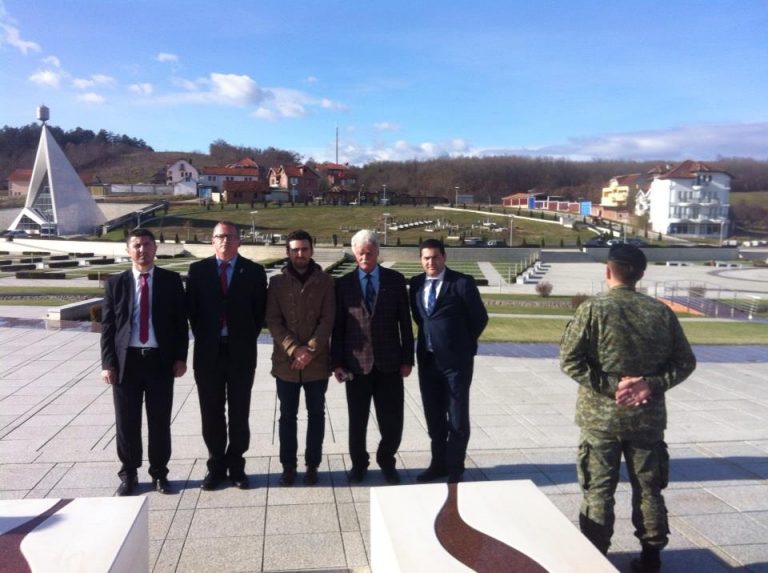
UBT Hosts Senior German Tourism Expert, Gunther Dress
18/12/2015A senior tourism expert, Mr. Gunther Dress, was recently invited to Kosovo in collaboration with UBT’s Center for Tourism Economics and Innovation to visit and provide recommendations on development opportunities for tourism in Kosovo.
Dress comes from Kempen located in the Bavaria region of Germany with extensive experience working with tourism and sustainable development around the world in countries such as Indonesia, Mexico, Romania, Lebanon, Bangladesh, Moldova, Georgia, Kazakhstan and Madagascar. Having also spent many years teaching and researching at various universities in Bavaria, his visit was also advisory in nature in regards to UBT’s establishment of the first academic center in Kosovo dedicated to the economics of tourism.
With over a week to spend in Kosovo (November 27th – December 4th, 2015), Mr. Dress was able to see most of the country’s touristic highlights outside of Prishtina including Peja, Rugova Gorge, Deçan, Prizren, Vushtrri, Drenas, Ulpiana, and a snow-covered Gracanica and Novobërdo. His greatest introduction to Kosovo, however, came in the form of a very special invitation to a traditional oda party for the 28th of November celebration where he was warmly welcomed as “guest of honor”. The unique experience was documented and presented on TV Klan Kosova which is now viewable here: https://www.youtube.com/watch?v=TWwgGSDFOQs&feature=youtu.be
The summation of all these adventures along with his proposals for the future of tourism in Kosovo were subsequently presented at the launch of the Center for Tourism Economics and Innovation / Tourism Strategy 2016 workshop held on December 3, 2015 at the UBT campus in Lipjan.
According to Mr. Dress, Kosovo – at the crossroad of the Occident and Orient – has much more touristic potential than it is realizing, particularly when it comes to nature (mountains, forest, and water) and culture (monuments, ensembles, way of life). In terms of types of tourists to be attracted, he noted small groups with an interest in cultural and outdoor activities; individuals coming by public transportation, their own cars, or local tour operators; business and congress.
He drew comparisons between Kosovo’s current situation with tourism to post-war Germany’s in the 1950s when there was much need to grow a more positive image internationally. They did this by developing the now famous Romantische Strasse (Romantic Road) route from Frankfurt to Munich, undertaking common marketing, and promoting Germany as an old historical country embedded into rich culture and history. Some of the first tourists coming through in fact were American GIs with their families who were stationed there. Today more than 15,000 jobs are directly related to tourism in Bavaria. In the same fashion in which the Romantic Road was created by connecting a number of tourist attractions under a common motto, one recommendation for Kosovo is to do the same with a historical theme.
Another touristic area in which Bavaria may serve as a model for Kosovo is in community based tourism as a means to strengthen rural development. With this approach, however, the government needs to be more proactive and provide high-level infrastructure in rural areas.
Mr. Dress closed his presentation with a list of strengths and weaknesses related to deficits and developments in Kosovo, trends of demand in relation to the suitability of Kosovo as a destination and a SWOT analysis on tourism in Kosovo.
UBT hopes to engage in more beneficial exchanges such as this in the future. It was a great first step in developing the Center for Tourism Economics and Innovation, and the information provided by Mr. Dress proved useful not only for UBT, but for many stakeholders in the tourism sector.
For more information regarding UBT’s Center for Tourism Economics and Innovation, please contact Larissa Olenicoff / larissa.olenicoff@ubt-uni.net.